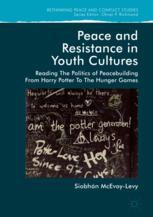

Most ebook files are in PDF format, so you can easily read them using various software such as Foxit Reader or directly on the Google Chrome browser.
Some ebook files are released by publishers in other formats such as .awz, .mobi, .epub, .fb2, etc. You may need to install specific software to read these formats on mobile/PC, such as Calibre.
Please read the tutorial at this link: https://ebookbell.com/faq
We offer FREE conversion to the popular formats you request; however, this may take some time. Therefore, right after payment, please email us, and we will try to provide the service as quickly as possible.
For some exceptional file formats or broken links (if any), please refrain from opening any disputes. Instead, email us first, and we will try to assist within a maximum of 6 hours.
EbookBell Team

5.0
18 reviewsThis book offers a rationale for and ways of reading popularcultureforpeace. It argues that we can improve peacebuilding theory and practice through examining popular culture’s youth revolutionaries and their outcomes - from their digital and plastic renderings to their living embodiments in local struggles for justice. The study combines insights from post-structural, post-colonial, feminist, youth studies and peace and conflict studies theories to analyze the literary themes, political uses, and cultural impacts of two hit book series – Harry Potter and The Hunger Games – tracing how these works have been transformed into visible political practices, including social justice advocacy and government propaganda in the War on Terror. Pop culture production and consumption help maintain global hierarchies of inequality and structural violence but can also connect people across divisions through fandom participation. Including chapters on fan activism, fan fiction, Guantanamo Bay detention center, youth as a discursive construct in IR, and the merchandizing and tourism opportunities connected with The Hunger Games, the book argues that through taking youth-oriented pop culture seriously, we can better understand the local, global and transnational spaces, discourses, and the relations of power, within which meanings and practices of peace are known, negotiated, encoded and obstructed.